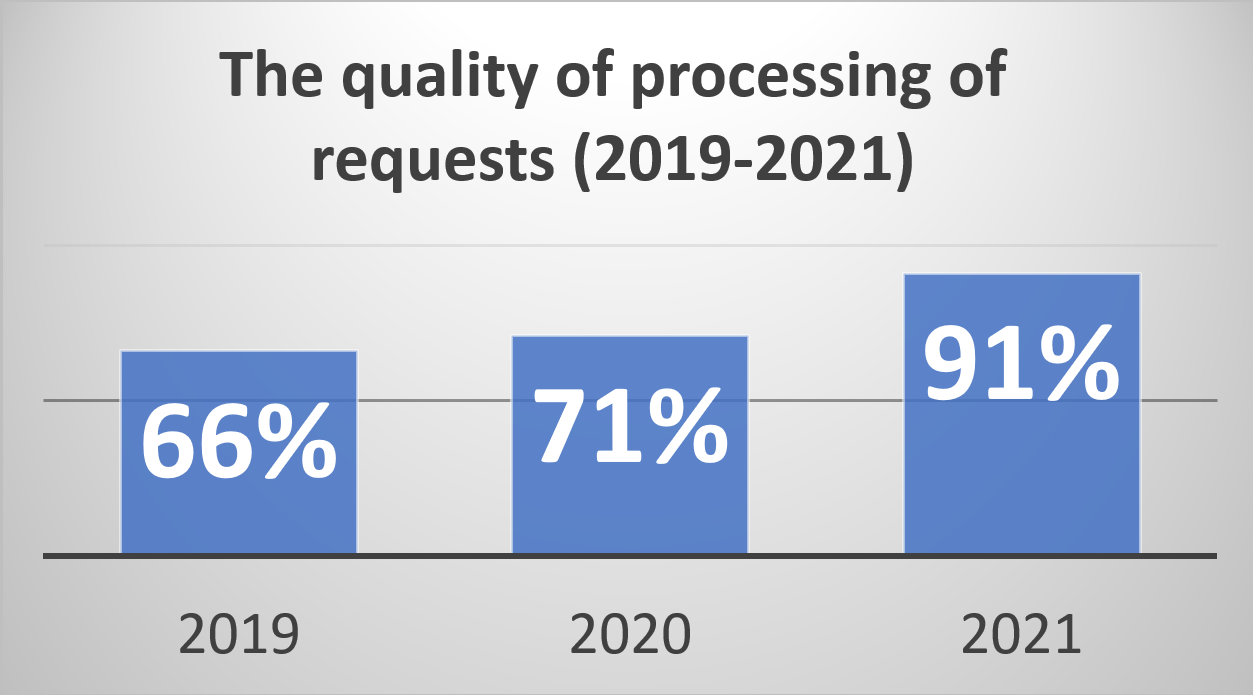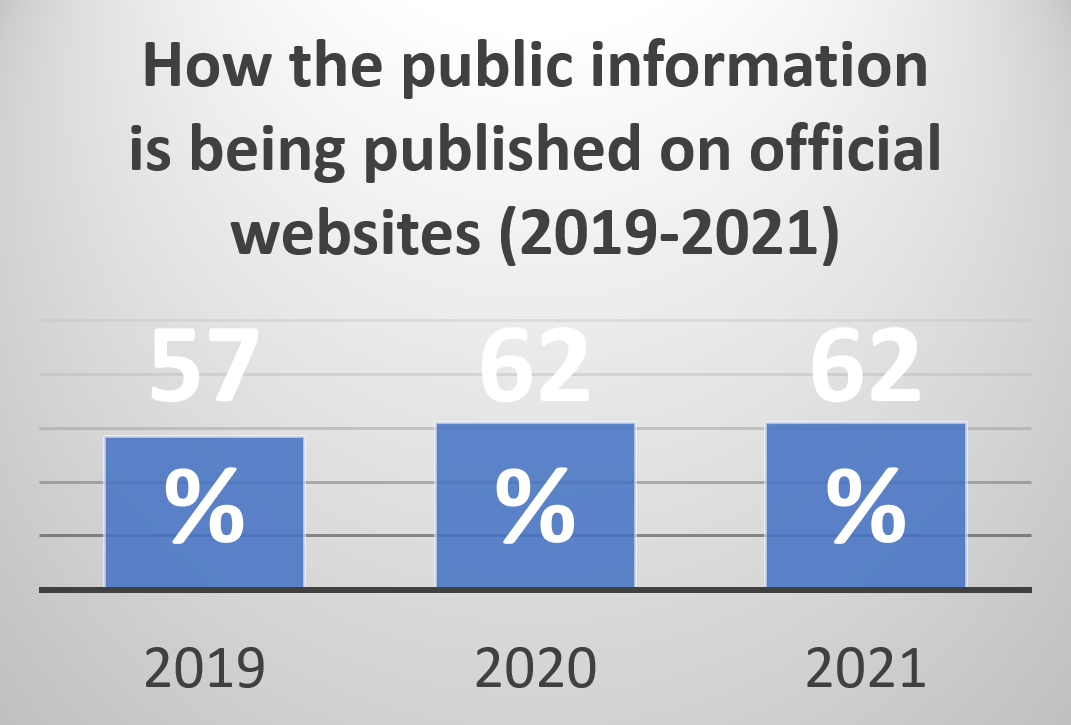On the International Day for Universal Access to Information, how legislation on access to public information is being adhered to in Ukraine under crisis
Access to information in the war-setting and pandemic: an ongoing stress test
September 28, 2022

Access to information is one of the key drivers of democratic governance and sustainable development. Every year, on 28 September, the world observes Right to Know Day and the International Day for Universal Access to Information, to highlight the importance of accountable and transparent governance. Ukraine joined the Open Governance Partnership in 2011 and adopted a law on access to public information – an essential step towards achieving the Sustainable Development Goals.
Access to information held by the public authorities is essential for transparency, governmental accountability, and participatory decision making. Moreover, it is critically important during times of crisis, when people need to take decisions based on timely and reliable information from official resources. This was proved first by the experience of combating the pandemic of COVID-19, and then by the full-scale war in Ukraine.
Monitoring results and the dynamic of changes in adherence to the law on access to public information
Since 2019, the United Nations Development Programme (UNDP) in Ukraine has regularly supported monitoring of access to public information in Ukraine. This includes regular checks of all aspects of implementation of the legislation on access to information, in 2019, 2020, and 2021. In addition, some assessments were made of particular aspects of observance of the law on access to information: specifically including how local authorities were publishing information about protective measures against COVID-19 in 2020 and 2021. Also, this year a new monitoring exercise will be conducted on access to public information in the context of the war.
These assessments are being conducted with the UNDP support, in partnership with the Ukrainian Parliament Commissioner for Human Rights (the Ombudsperson) and the Ombudsperson’s network of regional coordinators. The work of the team of monitors working in all regions of Ukraine makes it possible to track progress in providing access to information as quickly and objectively as possible. Specifically, despite all the challenges faced by Ukrainians due to the crisis triggered by the COVID-19 pandemic and the war in Ukraine, the involvement of regional coordinators enables access to information to be kept in focus, enhancing access to information.
In 2021, the experts reviewed the figures from the annual assessments and reviewed the progress achieved during the three years. This analysis showed how access to information has changed overall. For example, the assessments from 2019 to 2021 show a steady increase in the quality of processing of requests by the information holders – the authorities.

However, if we look at how the public information is being published on official websites, no positive trends have been observed over the past three years, and so additional efforts must be taken to improve this.

Advocacy and practical advice on providing access to information
To improve access to public information, UNDP in Ukraine, together with the Ombudsperson, are conducting an awareness-raising campaign and have developed practical recommendations for information holders.
Specifically, at the end of 2021, the Parliamentary Commissioner for Human Rights initiated an awareness-raising campaign supported by UNDP. The campaign took place in Kharkiv, Ivano-Frankivsk, Rivne, Dnipro and Sumy, and engaged around 1,400 public officials and information holders, including representatives of city and oblast councils, state administrations, and local self-government bodies.
In addition, a new Ombudsperson’s advisory handbook was developed for territorial communities with UNDP support. It is intended to assist local self-governments to establish systems to ensure that legislation on access to information is implemented. The advisory handbook provides answers to frequent questions and is based on successful cases from territorial communities, including document templates. It also has chapters on the development and implementation of internal administrative documents needed to comply with the law on access to information.
New challenges and solutions
Because of the war and the introduction of martial law, Ukraine’s legal system has undergone significant changes which affected human rights. Under the new conditions, the traditional tools for observance of the right to information faced significant challenges. As a result, certain rights and freedoms were restricted, triggering new violations of the right to know in some oblasts of Ukraine.
To prevent such violations and to protect the rights and freedoms in the context of war, human rights defenders from two civil society organizations – the Human Rights Platform and the Centre for Access to Public Information – developed a guideline on civic (personal), political and other rights in the war setting.
The guideline answers more than 60 common questions on civic, political, and other constitutional rights in Ukraine under martial law. In the questions-and-answer format it clarifies the most pressing human rights issues. The recommendations are divided in line with the target audiences: for civilians, and for duty-bearers.
Background information:
The monitoring survey of access to public information was performed by the regional network of the Ukrainian Parliament Commissioner for Human Rights with the support of the Human Rights for Ukraine (HR4U) project, which is being implemented in 2019-2023 by UNDP in Ukraine, with financial support from the Ministry of Foreign Affairs of Denmark.
The project also partners with the Ukrainian Parliament Commissioner for Human Rights and civil society to develop informational and analytical materials aimed to promote access to information in Ukraine.

 Locations
Locations